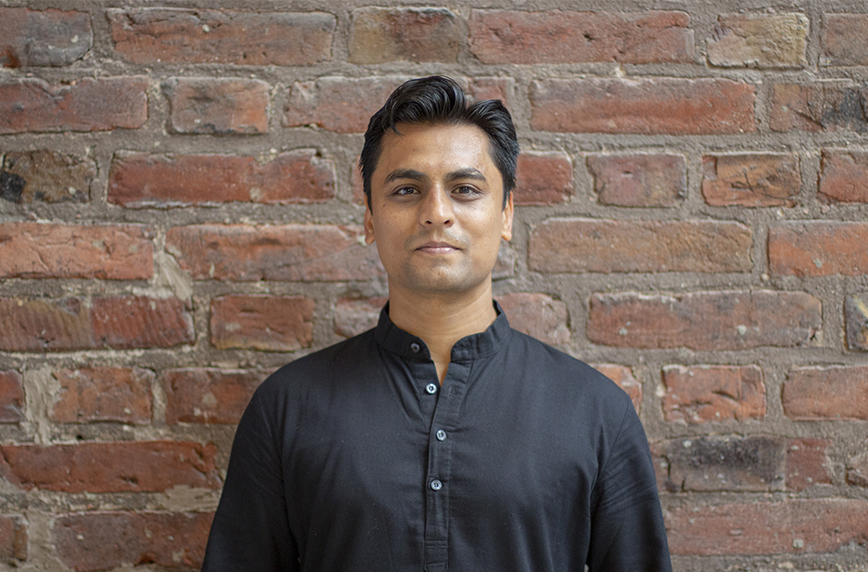KTH will help you become truly independent as you are forced out of your comfort zone
Omkar comes from India. He completed his Bachelor’s in Architecture from the National Institute of Technology (VNIT Nagpur) and his Master’s in Urban Planning from the School of Planning and Architecture (SPA Bhopal) in India. He enjoys reading, writing, running and adventure sports.

Why did you choose this master’s programme at KTH?
The programme offered by KTH is a specialisation in the Built Environment. Very few global universities offer this unique blend of practical and analytical orientation towards Planning. Furthermore, the courses here have an intensive application-based learning structure which inspired me to choose this master’s programme at KTH.
What are the best aspects of your programme?
The programme is self-orientated and technical and also caters for the diversity in the specialisation of its students. This empowers you to learn and do much more than what seems possible.
Have you chosen a specialisation track within the programme? If Yes, which track and why?
I have both industrial and academic research experience in Urban Planning. So, it was difficult for me to choose between Transport and the GIS track. Also, you don’t have to just accept one track. Nevertheless, I chose GIS as I am passionate about it. The courses are well aligned in order to anticipate our transition.
What are your favourite courses thus far?
GIS architecture and algorithms, Spatial databases, Image processing and applications have been exhilarating. These courses have a mini project which requires a great effort in order to deepen our understanding. This helps us progress and provides us with industry linkages to the courses.
How do studies at KTH differ from your previous studies?
Each academic year at KTH is divided into four study periods in which you primarily focus on just two courses per study period. You can take up one quarter of the total credit courses from any other department. Alternatively, there are exchange opportunities for top universities across the globe. Anyone can pursue their tailored study structure to define their thesis project, which can be undertaken collaboratively with any industry or at other global universities.
How is student life in Stockholm?
The capital of Sweden, Stockholm, offers cultural diversity and English is widely spoken. It’s the city that offers lagom city living and waterfronts, a lifestyle buzzing with activities. The city comes alive at night. It has a potential market for creative ideas and the capacity to carry you towards your success. It’s the city that celebrates laureates from every field by awarding the Nobel Prize.
How would you describe your time at KTH so far?
Even in these times of COVID-19, my time here has been stimulating. The harmonious student community life, supportive and flexible yet rigorous learning practices, are quite notable. I already feel nostalgic about the late-night group assignments at the KTH labs, lunch lectures, exam preparations in the KTH library, get-togethers and celebrations at Nymble, and other enjoyable activities. I am proud of KTH for managing these tough times so well.
What do you want to do after graduating?
I want to be a consultant, an expert in specific research projects worldwide, to help solve challenges and make informed decisions about future growth and change. I have started on this journey with the dream of making an impact. Every step takes me closer to accomplishing my dream; every effort counts.
What would you like to say to students thinking of choosing KTH for their master’s studies
KTH is a world of possibilities. At KTH you get to choose the courses and the ideologies towards a bright future. Realise your interests and be passionate about your studies, doubt your doubts and believe in your beliefs. KTH will help you become truly independent as you are forced out of your comfort zone. So, be prepared for the experience of a lifetime!

